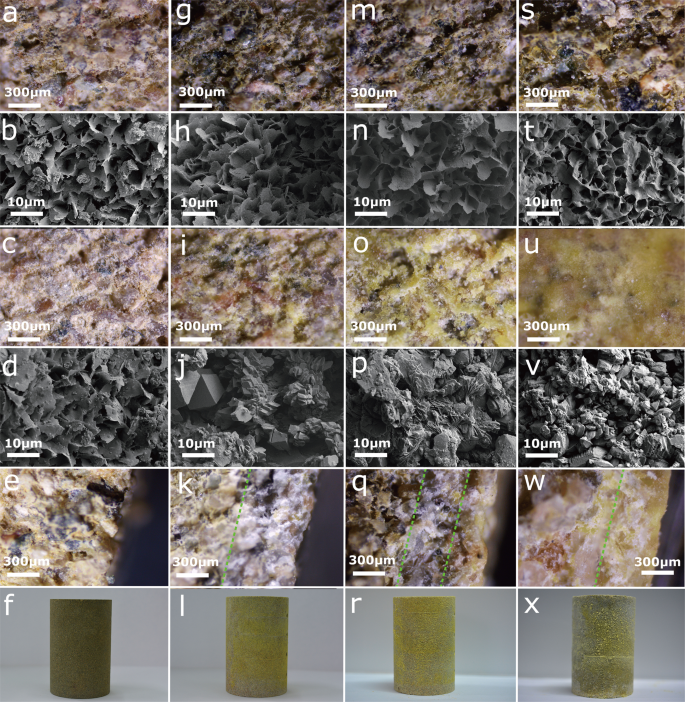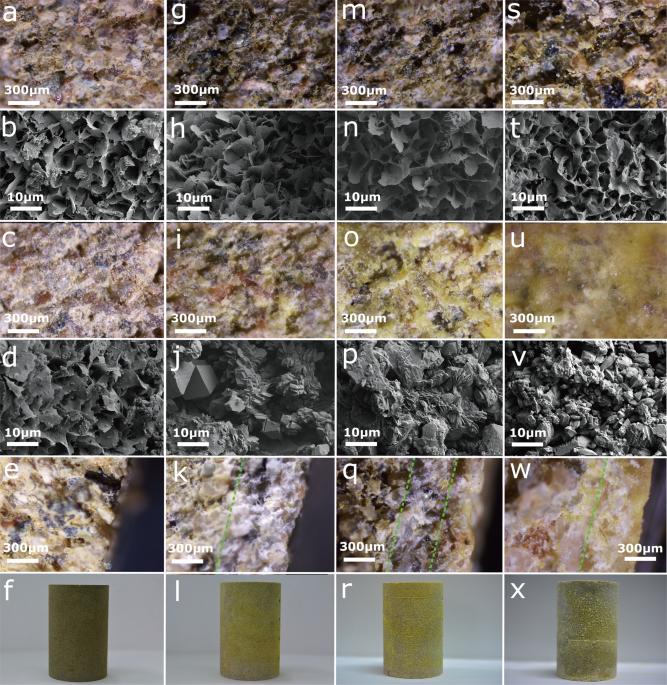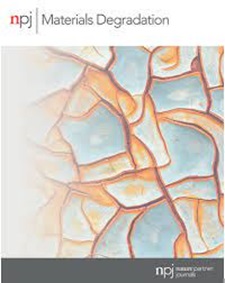In situ detection of spatial distribution information of temperature-pH-strain of sandstone cultural relics
IF 6.6
2区 材料科学
Q1 MATERIALS SCIENCE, MULTIDISCIPLINARY
引用次数: 0
Abstract
To monitor in situ the temperature, pH, and micro-strain change information of sandstone artifacts in the process of oxalic acid corrosion, the temperature, pH, and micro-strain fiber Bragg grating (FBG) sensors are developed. A theoretical model of the sensors is established. The surface morphology, material composition, pore structure, temperature, pH, and micro-strain of sandstone corroded by oxalic acid solutions of different concentrations are investigated. The experimental results show that the higher the concentration of oxalic acid, the stronger the corrosiveness of the sandstone. Ferrous oxalate and calcium oxalate produced by corrosion continuously precipitate from the inside of the rock, and the dual reaction of crystallization and dissolution occurs, reducing the proportion of fine pores in the rock pore suction and gravity. The oxalic acid solution is transported to the middle of the sandstone (3 cm) and undergoes the strongest chemical reaction with ore particles and debris, resulting in the maximum wavelength drift of the temperature, pH, and micro-strain sensors. The results of this study provide important support for analyzing the acid dissolution mechanism of stone cultural relics and the preventive protection of cultural relics.


砂岩文物温度-pH 应变空间分布信息的原位探测
为了原位监测草酸腐蚀过程中砂岩文物的温度、pH 值和微应变变化信息,开发了温度、pH 值和微应变光纤布拉格光栅(FBG)传感器。建立了传感器的理论模型。研究了被不同浓度草酸溶液腐蚀的砂岩的表面形态、材料成分、孔隙结构、温度、pH 值和微应变。实验结果表明,草酸浓度越高,砂岩的腐蚀性越强。腐蚀产生的草酸亚铁和草酸钙不断从岩石内部析出,发生结晶和溶解的双重反应,降低了岩石孔隙吸力和重力中细小孔隙的比例。草酸溶液被输送到砂岩中部(3 厘米),与矿石颗粒和碎屑发生最强烈的化学反应,导致温度、pH 值和微应变传感器的最大波长漂移。该研究结果为分析石质文物的酸溶解机理和文物的预防性保护提供了重要支持。
本文章由计算机程序翻译,如有差异,请以英文原文为准。
求助全文
约1分钟内获得全文
求助全文
来源期刊

npj Materials Degradation
MATERIALS SCIENCE, MULTIDISCIPLINARY-
CiteScore
7.80
自引率
7.80%
发文量
86
审稿时长
6 weeks
期刊介绍:
npj Materials Degradation considers basic and applied research that explores all aspects of the degradation of metallic and non-metallic materials. The journal broadly defines ‘materials degradation’ as a reduction in the ability of a material to perform its task in-service as a result of environmental exposure.
The journal covers a broad range of topics including but not limited to:
-Degradation of metals, glasses, minerals, polymers, ceramics, cements and composites in natural and engineered environments, as a result of various stimuli
-Computational and experimental studies of degradation mechanisms and kinetics
-Characterization of degradation by traditional and emerging techniques
-New approaches and technologies for enhancing resistance to degradation
-Inspection and monitoring techniques for materials in-service, such as sensing technologies
 求助内容:
求助内容: 应助结果提醒方式:
应助结果提醒方式:


